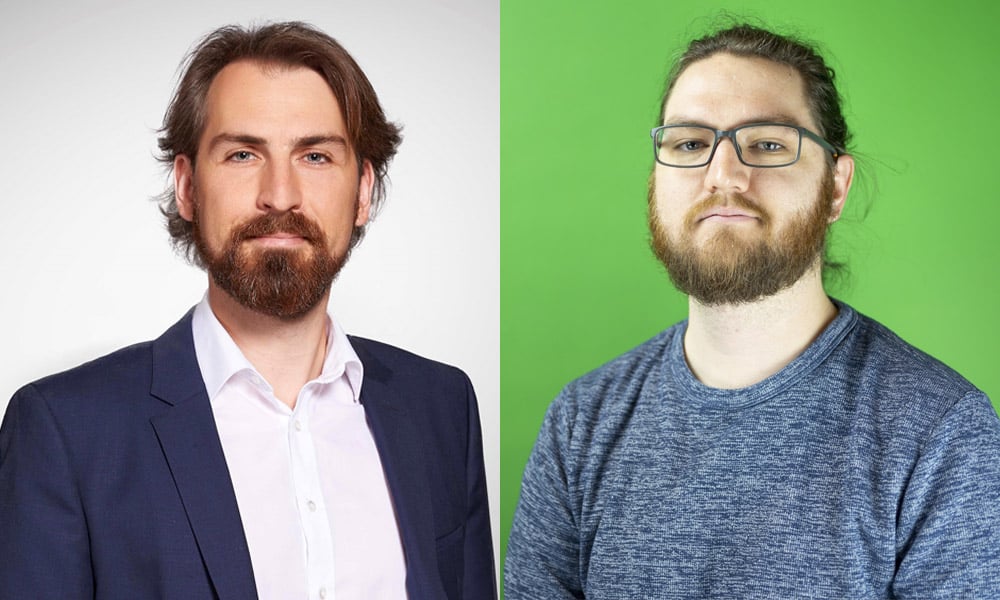
Security feature could allow for more widespread use of data-mined legal insights, says lawyer

A new differential privacy algorithm could allow lawyers to share the fruits of machine-learning legal tech tools without risking client confidentiality or having their work commandeered by the competition, says Dr. Wolfgang Alschner, associate professor at the University of Ottawa Faculty of Law.
Whether it is contract analysis, tools that convert handwritten text into editable and searchable files, due diligence or judicial prediction technology, machine-learning legal tech is trained on data that is often private and confidential. If an outsider gets access to the tool, they can reverse engineer the machine-learning model and expose the sensitive data.
“Once you can share models without sharing the underlying data, that then changes the picture, because then more people can benefit from the types of insights that begin from data mining,” says Alschner, who is also lead of the Legal Technology Lab at the school’s Centre for Law, Technology and Society.
Kira Systems, an AI-powered contract analysis software company announced they had built the differential privacy algorithm on Monday.
The technology was developed by Sam Fletcher, a research scientist at Kira. Fletcher’s patent is pending, and he has an academic article on the technology in review.
“The thing that really excites me about this, to me personally, is just how powerful differential privacy truly is. It's quickly becoming the gold standard all over the world,” says Fletcher.
Differential privacy is a part of the trend in AI toward built-in-privacy, says Alschner. The performance and the accuracy of AI has soared in the last decade, but there has been an accompanying concern that other aspects of the technology have not been advancing in such great strides, he says. Disconcerting to many is the “black-box nature” of much of machine learning, where once data is inputted, there is an amazing output, but little indication of what is happening in between, what is happening “underneath he hood,” he says. Designers are now increasingly assuring users by programming reasoning and explain-ability into the algorithm, and another of the benchmarks algorithm-designers are looking for is privacy, says Alschner.
“The product that Kira is now launching is very much in this in this line of making machine learning products more trustworthy, by adding to their ability to protect private information,” says Alschner. “And that is just a part of a larger trend where performance is just one of the many benchmarks that designers of these types of algorithms are looking for, and other values become just as important.”
The threat that hackers could steal and reverse engineer software, such as Kira’s, prevents lawyers from exploiting legal tech tools in collaboration with parties outside of their law firm or organization, says Steve Obenski, a lawyer and chief strategy officer of Kira Systems. In an M&A transaction, for example, where co-counsel come from different law firms often in foreign countries, it would benefit all involved if lawyers could share the tools they have trained on similar transactions, he says.
Lawyers also want to share their machine-learning tools with clients and the secure sharing of machine-learning models is a necessary feature when it comes to how legal services are increasingly being demanded, Obenski says.
“More and more firms are thinking about providing not just services, but literally software to their clients, to help them do things,” he says.
In the example of the M&A transaction, the software trained on similar transactions could benefit the client for use in post-merger integration and ongoing compliance, says Obenski.
“There's simple examples, like questionnaires that help you get to an answer about a legal problem that you have, which have been common now for a few years in the employment law space,” he says. “What if you could incorporate the lawyer’s expertise into software and deliver that software to the client site? It's almost like a virtual secondment of that lawyer to review documents on your behalf. And it's the software doing it. I think we're still a few years away from that happening in a widespread way, but not that many years.”